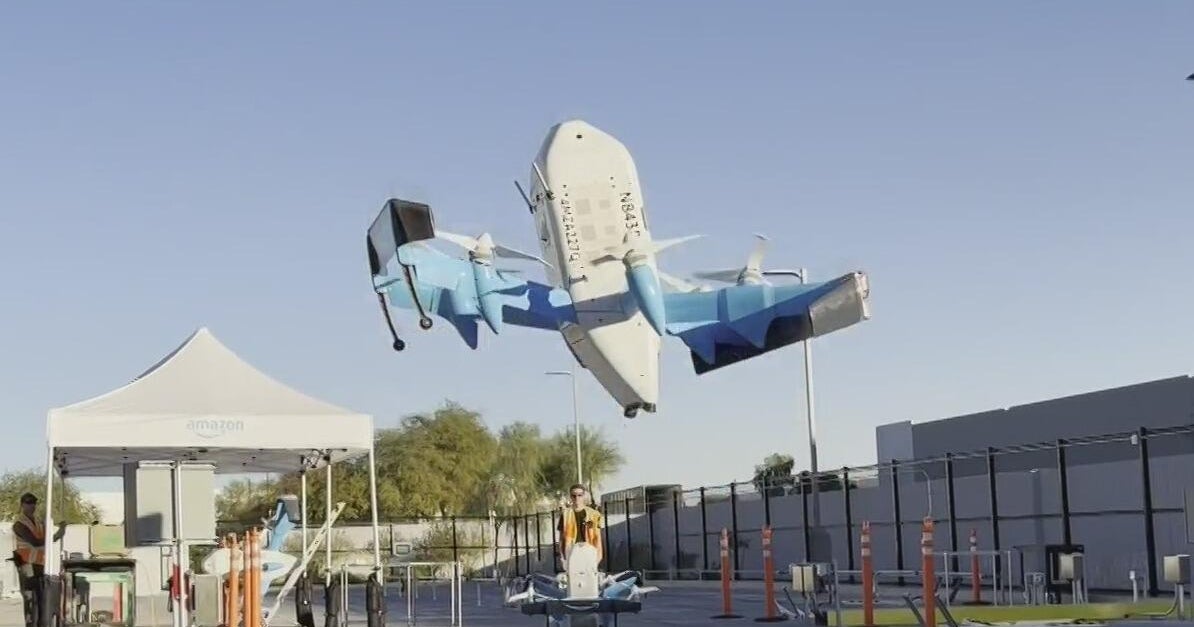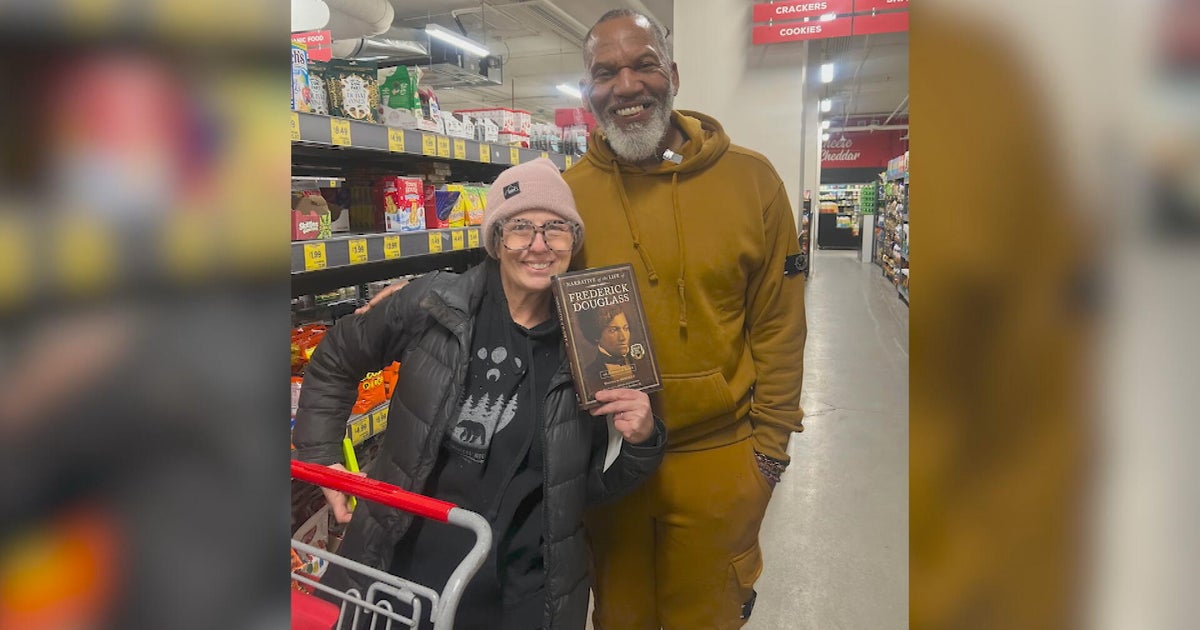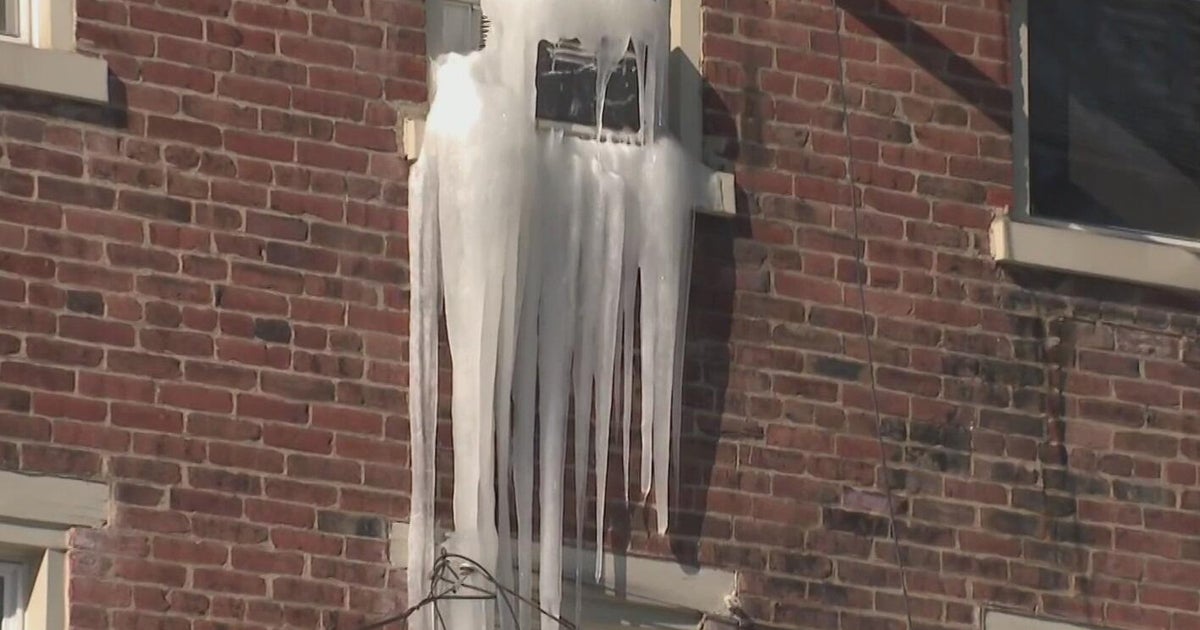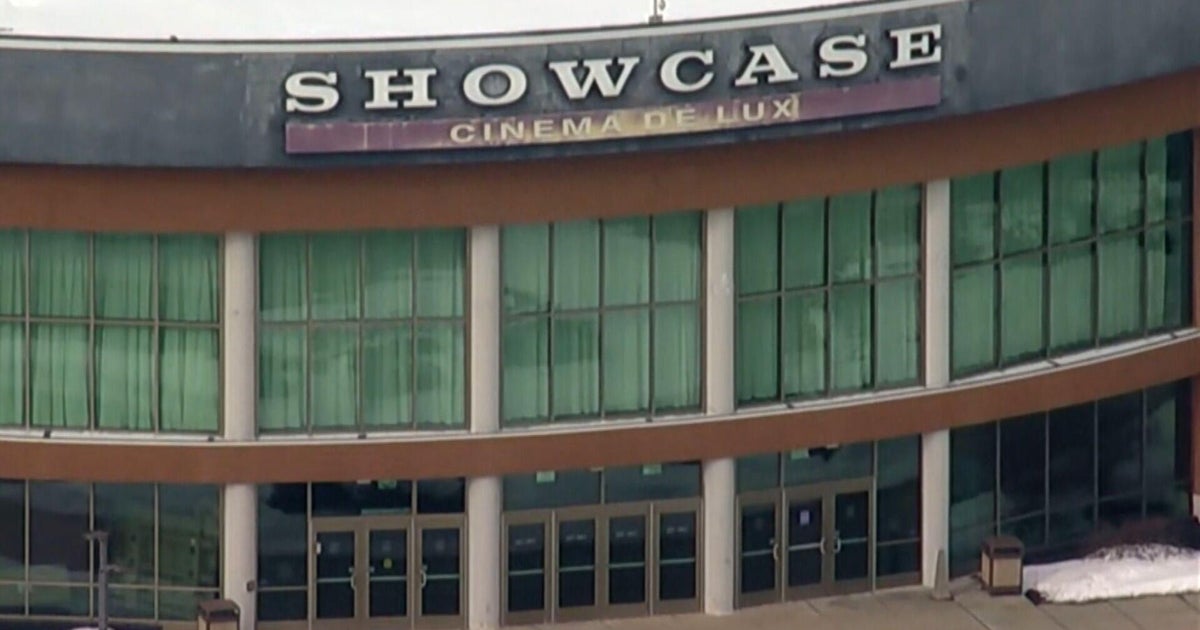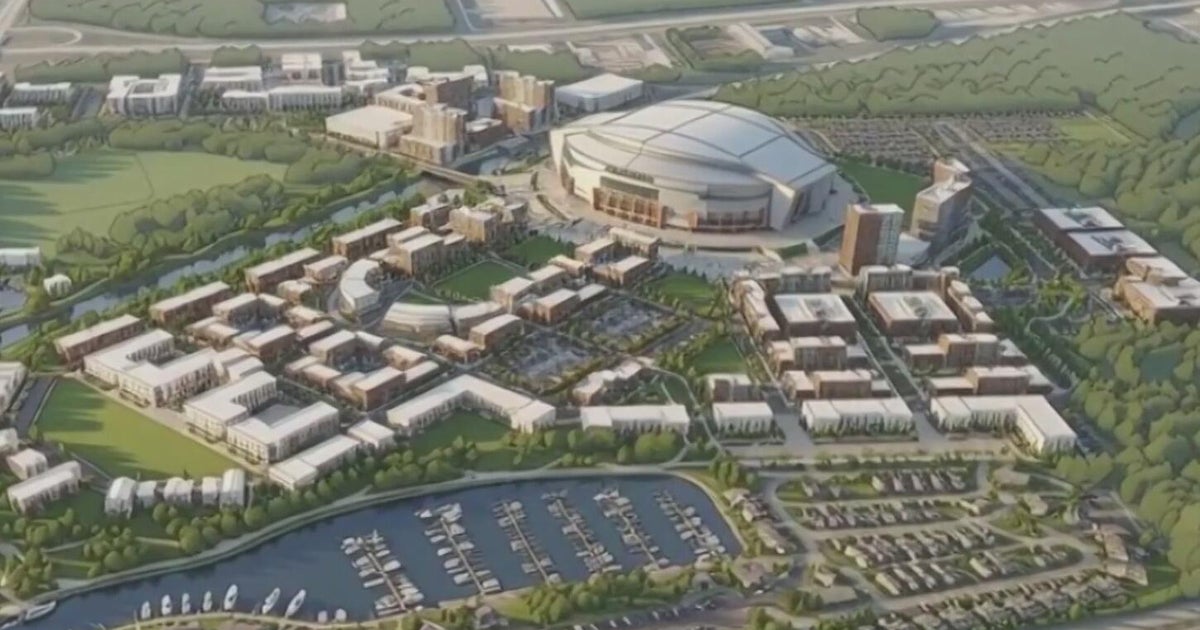Where Will Amazon HQ2 Land? Experts Weigh In
(CNN Money) -- The race is on: Amazon has announced its list of 20 cities that are finalists to host its second headquarters. But who will -- and who should -- win? CNN Opinion teamed up with CNNMoney to ask experts and thinkers for their views.
Related: Boston Among Amazon HQ2 Finalists
Roxanne Jones
Who will win: Austin, Texas, seems hot right now for the tech giants. Considering the Amazon-owned Whole Foods is located there, my business sense tells me Austin is the favorite.
Who should win: I'm biased. But being a Philly native isn't the only reason I think Amazon should move its second home, HQ2, to the City of Brotherly Love and Sisterly Affection. Not at all. Let me count the ways. Philadelphia, the city that was once our nation's capitol, is one of America's most beautifully designed cities. I've traveled the globe and for me Philly has some of best food I've ever eaten — and I'm not talking cheesesteaks — the warmest people I've known, and the most beautiful architecture in the nation.
And unlike, many major U.S. cities that are crowded with arrogant hipsters, high-rise condos and bumper to bumper traffic, Philly still feels old-school with lush green spaces, tree-lined parkways, historical parks, museums and rivers that flow throughout the city giving residents room to breathe. It's a comfortable place to live and work.
Diversity is the buzzword for the tech industry today. And Amazon could do no better than Philly. The city is a case study: 44.2% black and 44.8% white, 14.4% Hispanic, according the the US Census Bureau. The median home price sits at $147,300. But with a median household income of $39,770, Philly is in dire need of a corporate partner that could offer an infusion of jobs and technology. The 99 universities or colleges in or nearby the city make for a fertile generation of eager Millennials - about 25% of the population. Those young people are ripe to be educated and trained to thrive at Amazon.
Amazon would be a superstar in Philly. So don't overlook it, even if Austin may be the favorite. We thrive as underdogs, and not just when it comes to football.
Roxanne Jones is a founding editor of ESPN Magazine and former vice president at ESPN, has worked as a producer, reporter and editor at the New York Daily News and The Philadelphia Inquirer. Jones is co-author of "Say it Loud: An Illustrated History of the Black Athlete." She talks politics, sports and culture weekly on Philadelphia's Praise 107.9FM.
Richard Florida
Who will win: My own sense is that about five of the 20 cities -- large places with great universities and global gateway airports -- are really serious contenders for HQ2. At the top of the list, I would place New York, the greatest headquarters city in the world, and D.C., the world's power corridor. When I asked Scott Galloway, the author of the book The Four, where he thought Amazon would place its new headquarters, he simply said: New York, New York, and New York. But, D.C. is perhaps an equal contender.
Because Jeff Bezos already owns The Washington Post, an additional 50,000 Amazon jobs in the D.C. area might help deflect Congressional attention from his company's monopolistic tendencies. Not to mention, a key predictor of corporate headquarters location is where the CEO has a home. Bezos has homes in D.C., Manhattan, and Beverly Hills, which might also explain L.A.'s inclusion on the list.
Who should win: As someone who was born in Newark, lived in Pittsburgh, taught at Carnegie Mellon for nearly 20 years, and spends part of the winter in Miami, I'm pulling for one of my "hometowns."
While they are all long shots, my hunch is that Amazon is still weighing the individual advantages of each city. Columbus and Indianapolis make perfect sense as logistics and distribution hubs. L.A. and Nashville can be leading centers for Amazon's video and music content. Pittsburgh can host the company's artificial intelligence and robotics lab. Toronto can serve as its Canadian headquarters. Miami can do the same for Latin America.
Richard Florida is a University Professor and Director of Cities at the Martin Prosperity Institute at the University of Toronto's Rotman School of Management; Distinguished Visiting Fellow at NYU's Shack Institute of Real Estate; and the co-founder and editor-at-large of The Atlantic's CityLab. He is author of The Rise of the Creative Class, and, most recently, The New Urban Crisis.
Ryan Gravel
Who will win: I have a gut feeling this is Atlanta's. The downtown gulch is an enormous catalyst site with the best transit access in the region, including a ten-minute train ride to the airport. It is surrounded by multiple universities churning out talent and ideas, deep executive and logistics resources to draw on, and a reasonably-affordable, growing, and dynamic region with both vibrant local culture and outstanding global assets. Importantly, Georgia's political environment continues to generate game-changing business opportunities -- already in the film, music, and media future that should make Atlanta a magnet for Amazon.
Who should win: The city that should win Amazon's HQ2, is the one best positioned to handle the inevitable stresses that come with this scale of investment, and again, I think that's Atlanta.
Atlanta has a history of social inclusion tied to business interests, and the Atlanta City Design crafted last year, builds that legacy -- to protect the people and places we love from the market forces that will otherwise overrun them. Such an effort includes better transit, housing, resources, and public space, but the response cannot only be subsidy. It requires Atlanta's cultural mindset, strategic partnerships, and commitment to progress to deliver a city that is open to everyone.
Ryan Gravel is the founder of Sixpitch, an urban design consultancy, and the author of Where We Want to Live -- Reclaiming Infrastructure for a New Generation of Cities, (St. Martin's Press, 2016). He was the visionary behind the Atlanta Beltline. Follow him @ryangravel.
Ravi Bhalla
Who will win: The big winner will be Austin. Austin is a city with a burgeoning tech sector and a pool of young intellectual talent in the college students that Amazon can tap into with ease. Austin is also one of those cities that, being on the cusp of even greater things, creates an element of affordability that Amazon also seeks. Most importantly, the spirit and soul of Austin is one of innovation and cooperation, which fits well with Amazon's vision.
Who should win: Amazon's best option, however, is by far the City of Newark. Newark is home to an international airport and has the transportation infrastructure Amazon needs to accommodate its ambitious plans. Newark's growing reputation as a national model for urban revitalization, together with its booming economy, has placed it in a position to offer a $7 billion tax credit to Amazon, something that cannot be ignored. Most of all, in Newark, Amazon has a unique opportunity to play a historic role by completing the restoration of Newark to its former glory as city of international significance.
Ravi Bhalla is the mayor of the city of Hoboken, New Jersey.
Meghan Harte
Who will win: Chicago
Who should win: There are good reasons why 100 years ago Julius Rosenwald and Montgomery Ward revolutionized how things were and transacted in America. A key reason they changed "doing business as usual" was because they selected a great place for the home of the nation's first mail order catalog companies -- Chicago.
An ideal location, a diverse population, and some of the world's leading universities and cultural institutions, were just a few reasons these men selected Chicago to replace the nation's general stores and became the new purveyor of goods.
Today, these qualities still apply. Chicago remains the only location in North America where you can reach two oceans by land, water and the highway. It's a haven from climate change where hurricanes, droughts and natural disasters, sure to intensify over the coming decades, are less likely. Chicago has a magnificent lakefront open to all, world-class cultural institutions within a 20 minute drive and convenient public transportation from anywhere in the city, and a highly-skilled workforce that embodies the entire country -- equally divided between the three major ethnic groups.
We're the best educated among the five largest cities and tied with Boston for the most universities and students - a tremendous magnet for future employees. And finally, we're a city of neighborhoods with more affordable housing than any major city that has retained its historic character yet is equipped with the amenities to meet the challenges of the next 100 years.
Authentic and talented, Chicago is ready to herald and lead the next revolution as we were the last.
Meghan Harte, former deputy chief of staff to Chicago Mayor Rahm Emanuel, is executive director of LISC Chicago, a community development organization in that city.
Elana Broitman
Who will win: Amazon will pick New York City as the location for its second headquarters. Why wouldn't it?
Who should win: New York. And if Jeff Bezos needs a reminder of why this is the optimal location for his multi-billion dollar business, here are some attributes of the city for him to consider: It is unique as an international hub for finance, commerce, retail, and transportation. New Yorkers have always had our finger on the pulse of cutting edge trends that will help Amazon remain a global leader.
We combine proximity to some of the globe's best schools, with a dense footprint of diverse communities that will support Amazon with a rich pool of talent and insights to grow the business. We have always been — and will remain — a magnet for the best and brightest, attracted to the city's energy and culture. It is not only our transportation hubs or our excellent physical and broadband infrastructure that have fostered a rich technology ecosystem, but the innate audaciousness, perseverance and resilience of New Yorkers that has helped so many New York based companies thrive.
Elana Broitman is the director of New America NYC. Formerly, she was a senior adviser on national security to Sen. Kirsten Gillibrand and deputy assistant secretary in the Office of Manufacturing & Industrial Base Policy in the Department of Defense. The views expressed in this commentary are solely those of the author.
David Weinberger
Who will win: Amazon will crunch its numbers and come up with a new home that will drive down the cost of a ten-pack of microfiber wipes by $0.02. I have no idea what its spreadsheets and algorithms will land on, but, for what it's worth, I rate the wipes as five-star.
Boston would make you happy, Amazon. Well, as happy as we get around here these days. But I have a secret hope...
Who should win: I secretly hope that the company chooses one of the smaller cities where it could have a proportionally larger impact. True, by choosing a smaller city Amazon could functionally become a colonial power. But Amazon can be better than that. It could choose to help the city become the best it can be. Embrace the local population and culture. Enable and amplify it. Learn from it and teach it what Amazon knows.
If Amazon values its brand, it will help its new home flourish. So, Lordy, I hope Amazon's spreadsheet includes a column for how much good the move could do for the city it chooses.
David Weinberger is a senior researcher at Harvard University's Berkman KleinCenter for Internet & Society and author of "Too Big to Know" (Basic Books).
Jeff Yang
Who will win: With this move, Amazon is hoping to adjust its public perception to be seen as more than just a coastal-elite company from the bubble of tech. The company is aiming to become the biggest in the world, and to reshape the basic landscape of America (and the world). Dropping an anchor in a part of America that feels more "heartland" would be a critical aspect of that rebranding.
But to lure and develop top talent, the company still needs a progressive, open-minded, educated environment. It's not exactly a coincidence that the deeper the red of a state or city, the less likely it is to have the social landscape or cultural resources to which technology professionals gravitate (especially since tech workers disproportionately tend to be immigrants, or children of immigrants). And given how critical climate is to their business, Amazon likely will avoid northeastern cities buffeted by winter storms, or Miami, which is exposed to tropical ones.
My guess is that for political and pragmatic reasons, they'll pick a deep blue city in a red state in the midwest or south. Austin has a leg up because it's the location of the Whole Foods HQ, now owned by Amazon, and is a major Southern tech epicenter. Raleigh, NC is also likely in the running, and Atlanta, GA, with Indianapolis as a wild card.
Which should win: Amazon will transform the city in which it plants this new headquarters, in both good and bad ways. I doubt that major metropolises like New York and Los Angeles have the flexibility to accommodate such changes — even if one outcome is a huge infusion of jobs and infrastructure investment benefiting lower income workers, affluent existing residents will always push back on the personal expense and discomfort that comes too. And there are more outspoken NIMBY types in places like New York and LA than anywhere.
I doubt it'll happen, but I think landing in Miami and actively hiring displaced Puerto Ricans, or setting down in Newark and giving a boost to the persistently depressed economy of that city while aggressively hiring black workers would be fantastic. Newark does have the advantage of being close both to New York City and the McMansion suburbs, so maybe it has a better shot than I'm guessing?
One thing's for sure, if Amazon does end up there, it's because Cory Booker is running in 2020.
Jeff Yang is a frequent contributor to CNN Opinion, a featured writer for Quartz and other publications and the co-host of the podcast "They Call Us Bruce." He co-wrote Jackie Chan's best-selling autobiography, "I Am Jackie Chan," and is the editor of three graphic novels.
The-CNN-Wire
™ & © 2018 Cable News Network, Inc., a Time Warner Company. All rights reserved.

